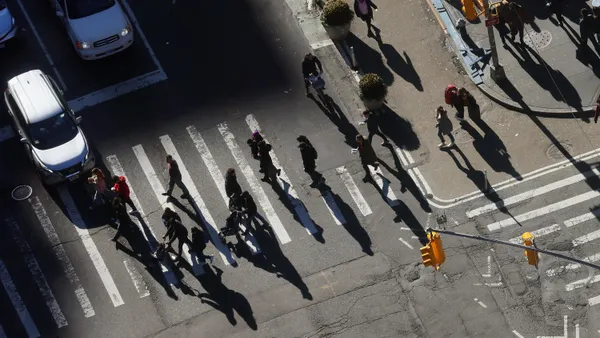Dive Brief:
- Disney's unionized workers won a big boost in hourly wages after a long labor dispute at the entertainment behemoth's Anaheim location, CNN Money reported. The three-year agreement immediately raises the workers' current $11 an hourly minimum wage by 20%, to $13.25. Starting Jan. 1, 2019, workers will earn $15 an hour, and the wage will grow to $15.45 in June 2020.
- Employees at the current minimum wage rate would earn an additional $8,000 annually, CNN said. Non-union employees' wages will be negotiated separately. The wage contract covers hourly union jobs in such areas as attractions, retail, costumes, custodial services, parking and transportation. The union represents 10,000 workers, a third of Disneyland's entire workforce.
- According to CNN, the union workers' win for a $15 an hour increase got a public boost from Sen. Bernie Sanders (D-VT), who attended a large rally in Anaheim in June. The wage increase puts Disney ahead of California's $15 an hour minimum wage increase, which takes effect in 2022.
Dive Insight:
While the effort at Disney was union-driven, some employers, many of them retailers, have chosen to raise their wage rates to be more competitive in attracting applicants and reduce high turnover. Starbucks, Target, Walmart and Chick-fil-A raised their rates this year, largely in response to a tight labor market with a current record-low unemployment rate of 4%.
But outpacing California's requirement is no small feat, especially as wage hikes become a serious consideration for employers. Following the golden state's lead, several states and municipalities across the country have written minimum wage raises into their laws, 18 of which became effective in July. Thirty-seven jurisdictions' minimum wage increases already went into effect at the beginning of the year, and more increases will kick in during the rest of the year.
As the federal government continues to cut regulations on businesses, experts say employers can expect more legislation at the state and local levels, although some attempts have faced backlash. This makes for a challenging compliance atmosphere for employers, who also could face various increases if they operate in multiple states or jurisdictions.












